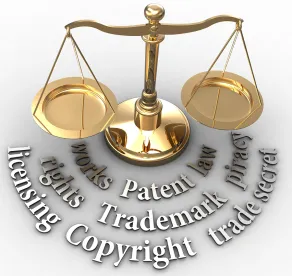In 2020, the PTAB increasingly denied otherwise meritorious petitions for review under its discretionary authority, as my partner Steve Auvil and I recently discussed. Many such denials were made in view of co-pending litigation under the so-called Fintiv factors adopted last May. The reaction to the PTAB’s approach was vocal and divided, and the USPTO received a record number of responses to its request for comments on the subject, but no changes have been made. Rather, the PTAB has designated as precedential two decisions where review was instituted despite co-pending litigation — confirming more precisely how its decisions will depend on the actions of both courts and litigants.
Central to both decisions was the slow progress of co-pending litigation over its first year, a factor that could compensate for the filing of a petition at or near the statutory bar date. Two further considerations weighed strongly against exercising discretion to deny institution. The first was the court’s granting of a motion to stay the litigation before the PTAB issued a decision regarding institution of review. The second was a stipulation by the petitioner that it would not pursue “any ground raised or that could have been reasonably raised in an IPR.” In either of these situations, the PTAB was less likely to deny the petition under its discretionary authority.
Background
To understand how these considerations can influence the PTAB’s exercise of discretion to deny institution, it is necessary to recall the Fintiv factors. The PTAB has — since designating its decision in Apple v. Fintiv as precedential in May 2020 — addressed the following six factors:
Factor 1: Whether the court granted a stay or evidence exists that one may be granted if a proceeding is instituted
Factor 2: Proximity of the court’s trial date to the Board’s projected statutory deadline for a final written decision
Factor 3: Investment in the parallel proceeding by the court and the parties — including whether the petitioner showed a lack of diligence or delay in filing of the petition
Factor 4: Overlap between issues raised in the petition and in the parallel proceeding
Factor 5: Whether the petitioner and the defendant in the parallel proceeding are the same party
Factor 6: Other circumstances that impact the Board’s exercise of discretion, including the merits
The Designated Decisions
In Sotera Wireless v. Masimo., designated precedential on December 17, 2020, the PTAB applied the Fintiv factors and found as follows:
Factor 1: The pendency of a motion to stay the litigation pending IPR did not weigh in favor of or against denial of institution.
Factor 2: A trial date set for “around the same time” as the deadline for institution did not weigh in favor of or against denial of institution.
Factor 3: Where claim construction, expert reports and substantive motion practice remained to be done in the litigation, and fact discovery was ongoing, there was “limited investment” that weighed against exercising discretion to deny institution.
- The fact that the petition was filed just two weeks before the one-year-post-service deadline did not change the assessment of Factor 3, because the filing was only two months after invalidity contentions and there were a large number of patents and claims at issue.
Factor 4: The petitioner’s provision of a stipulation that “if IPR is instituted, they will not pursue in the District court [l]itigation any ground raised or that could have been reasonably raised in an IPR” weighed strongly against exercising discretion to deny institution.
In Snap v. SRK Technology, also designated precedential on December 17, 2020, the PTAB applied the Fintiv factors and found as follows:
Factor 1: Where a district court has already granted a stay pending the PTAB’s institution or final decision, this factor weighs strongly against exercising discretion to deny institution.
Factor 2: The progress of a case that is currently stayed is speculative, so this factor cannot weigh in favor of exercising discretion to deny institution.
Factor 3: The stay of a case before the completion of fact discovery and before issuance of any orders related to the patent weighs against exercising discretion to deny institution
- The fact that the petition was filed over a year after filing of the complaint did not change the assessment of Factor 3, because the litigation was still in its early stages.
Factor 4: Reliance in a petition on a reference that was not, explicitly or implicitly, identified in the litigation was a material difference between the two proceedings, and together with the stay of the litigation, weighed against exercising discretion to deny institution.
For each of these cases, Factor 5 was neutral because the petitioner was a defendant in the parallel proceeding. With respect to Factor 6, the PTAB noted that the petitioners had met their burden of demonstrating a reasonable likelihood of showing the challenged claims to be unpatentable.
Discovery and Secondary Considerations
In Snap, the PTAB also considered whether the availability of discovery in the litigation on secondary indicia of non-obviousness weighed in favor of denying a stay. The PTAB found it did not. The PTAB rejected the Patent Owner’s argument that it was in the interests of justice for such discovery to proceed before the District court, and emphasized that its own rules provide for limited discovery.
Takeaway
The Sotera and Snap decisions are a clear and strong message from the PTAB about how it will respond to specific actions taken by a petitioner and/or a court in co-pending litigation. Where litigation is slow to proceed, the PTAB is less likely to deny an otherwise meritorious petition if (1) the petitioner presents different invalidity grounds in the matters and/or stipulates that it will not pursue in the litigation any ground raised or that could have been reasonably raised in the IPR, or (2) the court has signaled its deference by granting a motion to stay before an institution decision. Petitioners and courts that desire institution of review by the PTAB should proceed accordingly.




 />i
/>i
